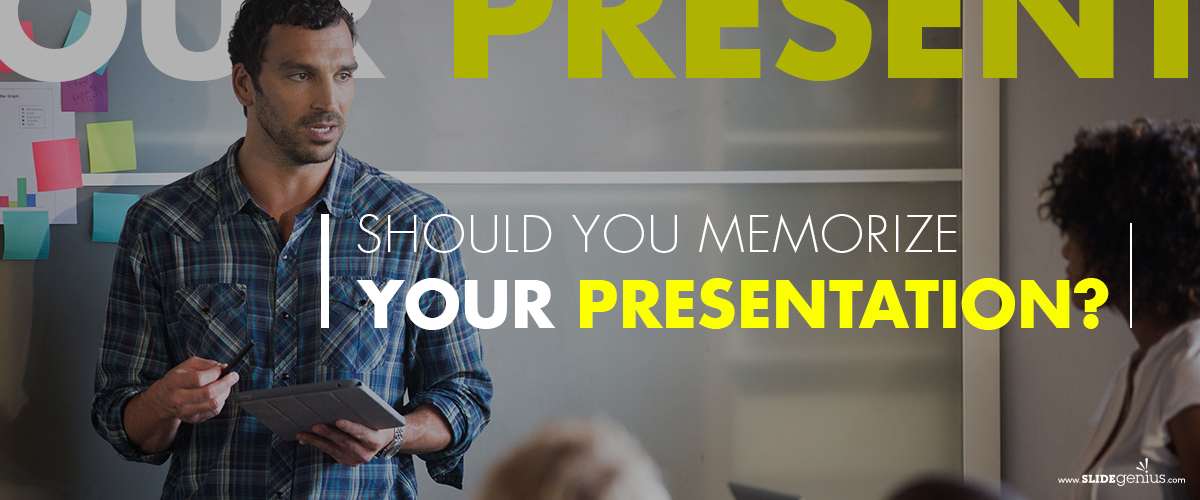
If there’s one thing people fear worse than death itself, it’s public speaking.
Professional speakers and experienced executives will often hire PowerPoint design services to focus on the visual aspect of their presentation. This way, they can maximize their time for speech preparation.
Sure, it can be nerve-wracking, but if done right, it will always feel fulfilling in the end.
Once you address your anxiety, it might make you a bit paranoid, but don’t worry about it—many people deal with this, too, and everyone has their own way of dealing with it.
While there are those who consider memorization as a means to reduce anxiety, others may find it difficult, consequently adding to their stress.
Dr. Genard, author of Fearless Speaking, thinks memorizing speeches is a terrible idea. To him, reciting from memory detaches the speaker from the audience. In addition, it makes them sound stiff and mechanical.
When stress and anxiety kick in, all the information you’ve memorized will disappear. These hijack the brain and reduce fluid intelligence—or the ability to solve problems. This was observed by Sian Beilock, an Associate Professor of Psychology at the University of Chicago.
Instead of memorizing your presentation, rehearse as much as you can. Ask your peers to critique and give their feedback so you can apply these to the way you present.
Knowing the pitch like the back of your hand results in you delivering your pitch conversationally. This makes it easier for your audience to pick up on the emotions and reactions you’re trying to coax from them.
Break your ideas into bite-sized chunks and get to know the gist of each one, so you can describe them on your own later on. By then, it will become easy for you to play around with concepts to compare and contrast them with. This allows for a more authentic, on-the-spot performance, as you’re telling it with your own voice—making your expertise on the subject shine.
Darlene Price, a communications coach and the president of Well Said, Inc., stated in an article with Business Insider, that memorizing your opening is fine and recommended since the beginning of the pitch often carries a rush of adrenaline, empowering you to start strong and make a confident first impression.
—
The way you deliver your speech matters more than the content. No matter how interesting the information is, if you’re lacking confidence, it’s not going to come out right. Why sell your presentation short when you could be convincing people to trust you.
Above all, reciting a memorized pitch takes the authenticity and fun out of presenting. Custom PowerPoint presentations can provide the key points of your discussion, but it’s still up to you to carry the flow of conversation with confidence.
Presentation anxiety is normal and you shouldn’t make a big deal out of it. The only way to lessen it is to make sure that you’re prepared for it. Accept their feedback gracefully, so you can improve and deliver your next presentation with more confidence and conviction.



